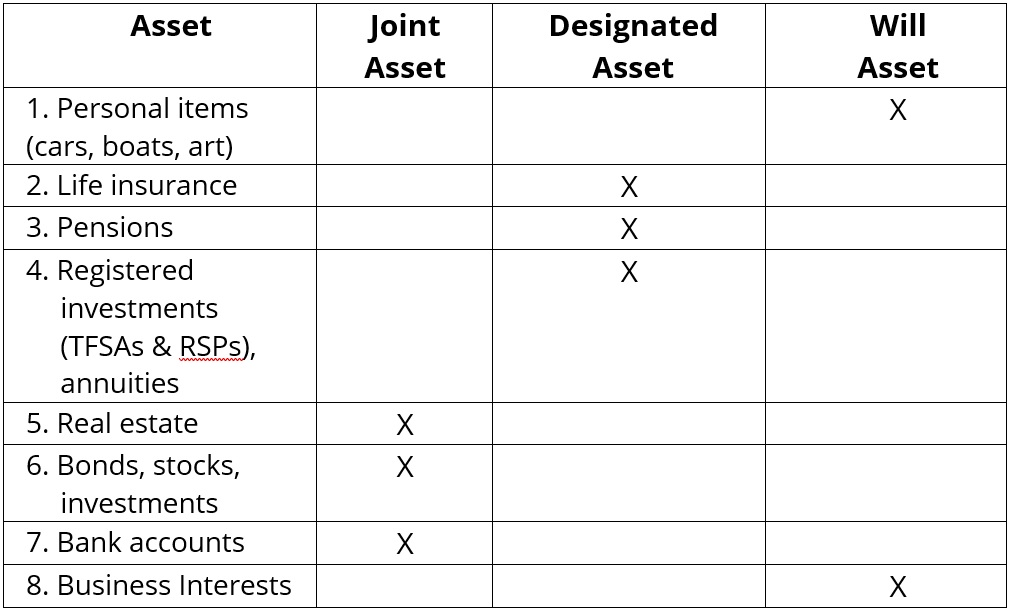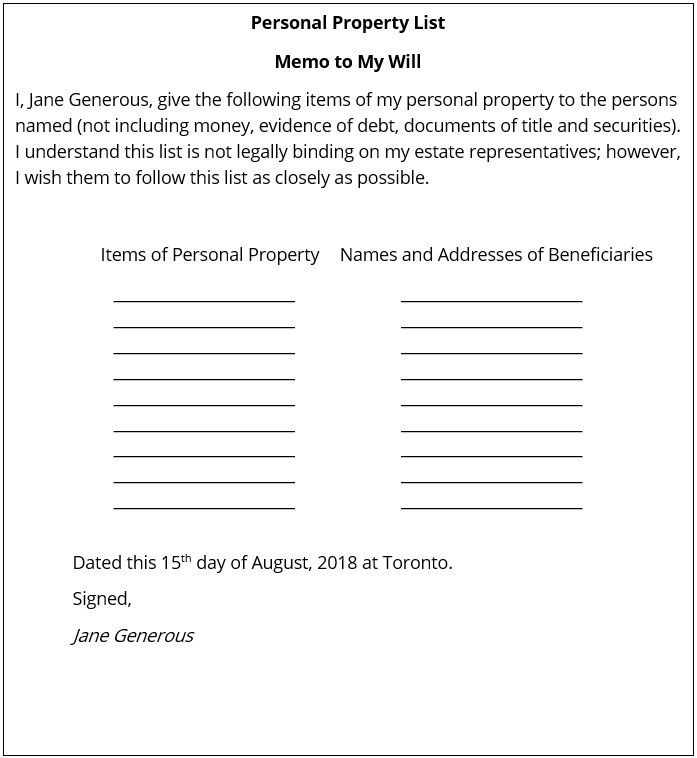How to Handle Picky Personal Items in Your Last Will
Making Wills Easy – New Summer Series 9
You may have a problem figuring out what to put into your will. Do you need to itemize each and every bank account? Do you need to attach an inventory of your accounts and online passwords? Who has time for all of that?
I’ll show you how to simplify your will-making. I have explained the estate pie to get you organized for what goes into your will in my last post, At Last, The Secret to Giving Your Stuff Away in Your Will.
So, do you need to itemize every single little thing you own?
Assets that are in your name alone or owned by you are will assets. This means will assets are transferred by your will upon your passing. Will assets include cars, houses, investments and bank accounts that are only in your name.
Yes, You Need a Will
You may say, “Ed, my will assets are only a very small portion of my estate. Do I still need a will?”
Yes! What if the person you designated or owned joint assets with dies first? You also need wills to name guardians and hold assets for minor children. Wills name executors who handle your affairs after you are gone.
Take a moment to analyze your assets using this chart. You’ll understand what your will controls.
List Your Estate Pie Assets

Okay, so you now can see what your will assets include.
Beware of Family Curses … and Family Heirlooms
Your executor must first pay your debts, including taxes. After your bills are paid and specific gifts distributed, what’s left? Your estate residue. Let’s cover what you do with your residue to avoid costly mistakes.
Most persons’ wills don’t need to describe specific personal property. You may want to specify that “the contents of my home or apartment shall be divided according to any memo I leave.” This avoids you preparing detailed inventories of your home contents. You don’t need to list your water jets, cars or snow blowers.
You can leave the distribution of your contents to your executors’ discretion. If your executors are also your beneficiaries, that may be easier.
However, you can establish methods for the division. Typically, this is done by drawing lots or other methods. Beneficiaries can make selections and take turns on a rotating basis. These procedures are often best left for your beneficiaries to figure out. You only want to include items in your will that have value. This can be either financial or sentimental value.
You can use a memo to deal with personal items, like your grandfather’s Rolex timepiece or your grandmother’s diamonds. Memos can be morally persuasive but they are not legal binding. Why is that? Because personal item memos must be dated and signed with the will. This can make them private and legally binding. However, it also makes them less effective.
Give It Away in Memos
The purpose of using a memo for your personal items is that it gives you greater flexibility. You don’t have to pay a lawyer to update your memo whenever you make any changes.
People used to collect silver tea sets which were passed down for generations. Now, no one wants to bother with silver. So why put it into your will? Well, if it’s a family heirloom you may feel obliged to do this to avoid a family curse.
If you’re leaving real estate, you need to properly describe it. Getting the address or city wrong can cause your gift to fail. Your lawyer should use a legal description to avoid any possible confusion. And what about all the stuff you live with that we call personal property (as opposed to real estate that is real property)?
Jane, for example, wanted some of her art sold with proceeds donated to charity. Her will identified valuable art in her home for sale. This was detailed so her executors could identify items for donation.
If you must include family heirlooms in the will to avoid family trouble, then consider making a short list only. Remember, these items will need to be appraised and valued after you’re gone.
Dangers with Personal Property Memos
But be careful with memos. Here’s why.
In some jurisdictions, your handwriting can amend your original will. You can accidentally change your will with a handwritten note. You should consider having a typed list for personal property. See below for a sample memo.
Another caution is to avoid leaving 16-page memos listing hundreds of items. Your executors will only resent you. Consider your executors’ moral and legal obligation to insure any valuables. They must arrange for delivery of such collectibles with token values. This can become time-consuming and expensive.

Have more questions about what to put in your will? Contact me for an appointment.
Posted In: Estates, Wills On: August 17th, 2018





 416 769 - 9800
416 769 - 9800